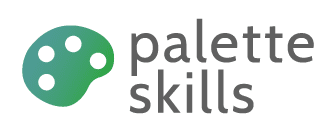Get ready for questions
You’ve done everything right. You’ve researched a career opportunity at a great company, you’ve taken the time to write a simple and compelling cover letter, and you have tailored your CV for the job opportunity you want.
So far, so good.
Now the company has called you back to ask for an interview. So what next? Job interviews can be enjoyable, but the truth is they can also be stressful. And one of the parts of the job interview people find most challenging is when they are asked about something they did in a previous workplace or career situation. These are called behavioral interview questions, and they can be tough to answer. So let’s take a look at the history of these kinds of questions, why they get used, and look at a simple strategy you can use to give job-winning responses.
Behavioral questions: a history
You may not believe this, but there haven’t always been job interviews, and there haven’t always been questions about something you did in the past so you can land a job in the future. Most people think that the modern job interview was invented by Thomas Edison, the person who invented the light bulb. The story goes that he came up with a list of questions for potential workers, and while some of these questions were directly related to jobs workers were applying for, other questions were more general, sometimes even asking about things like knowledge of geography.
Fast forward to the 1980s, when modern behavioral questions were developed by Dr. Tom Janz, an industrial psychologist. His idea was that learning about past behaviours could help HR specialists make predictions about future behaviours, and that if a candidate could describe how they successfully managed a difficult workplace situation in the past, they could probably be counted on do it again in the future.
Going soft
As the science and practice of the job interview has developed, open-ended behaviour questions are now key tools for evaluating critical skills that are more and more valued in today’s workplaces. These critical skills are what are known as soft skills, and employers in many different fields are looking for people who can bring these kinds of skills to the table.
In fact, as this smart guide for employers makes clear, behavioural questions are the best way for your interviewer to find where you rank when it comes to the following 6 important soft skills. And these are:
- Adaptability
- Culture fit
- Collaboration
- Leadership
- Growth potential
- Prioritization
So for example, let’s say your potential employer wants to find out how adaptable you are. The job you’re interviewing for may require wearing different hats, or doing different tasks, or even being able to improvise procedures on the fly. So during your interview, it’s likely you’ll get a question like this:
“Tell me about a time when you had to do something new at work. Something maybe you weren’t ready for. How did you handle the situation? What did you do?”
See how it works? Now, imagine if your potential employer wants to know about your ability to collaborate, which is a fundamental soft skill. They might ask you a question like this one:
“Can you describe a situation when you had to work with someone who was hard to get along with? What kinds of things did you do? How did you manage?”
From these examples, it should be clear by now that these kinds of questions are important for employers, which means that giving the right answers has to be important for you, too. So let’s take a look at a helpful strategy you can use to give answers that work—not only for the employer—but for you as well.
Look for the STAR
A great strategy for handling behavioural interview questions is called the STAR method. STAR is an acronym that stands for Situation, Task, Action, and Result. Let’s go through these quickly, so you’ll know how to handle even the toughest behavioural questions. If you can remember the word “STAR” in a job interview, you’ll be in a good position to answer any questions easily, and convincingly. The last thing you want to happen is to draw a blank, and not have any answer at all. Believe us when we say that this can happen to anyone, especially if they’re unprepared. Ready?
Situation
Here’s where you need to work on your ability to tell a story quickly and effectively. When an employer asks you a question that begins with the phrase “tell me about a time when…” it’s a cue for you to set the scene. Don’t spend too much time here, but focus instead on providing all the necessary details the employer needs to understand the situation you were in. Were you part of a team? Working alone? How long ago was it?
Task
Here’s where you get into the nuts and bolts of what it was you were doing. Remember you have to make this information relatable, and you have to make it stand out as a challenge. Think of what we call the story arc here. If you talk about an easy task you had to perform, and then say you just did it, that’s not much of a story.
Action
Here’s where things get interesting. You’ve set the scene, and you’ve outlined the task—or the challenge—you had to face. So now you have to answer the question: how did you do it? Was what you did innovative or unusual? Was it brave or honest? Did you build a connection where there was none before? Think about the context of the question, and be prepared to give credit to others, especially if collaboration and teamwork are important for the person asking the question.
Result
In some ways, this last part of the STAR technique can be the most difficult, but it’s critical to get it right. You have to go beyond describing the challenge you faced, and talk about how what you did benefitted people around you, the organization you worked for, and maybe just a little, how what you did—and how you did it—helped you. You want to be able to get beyond the details, and explain why it mattered. And remember, even if you weren’t successful, maybe the result was that you and your team learned something important, and your organization changed the way it did business. That’s a very important and valuable thing for an employer to hear from a prospective employee.
Always build your interview skills
Reading about career-winning strategies is one thing, but practicing them is another. And clearly, the best way to learn how to handle complex behavioural questions is to practice answering them. The fact is, doing well in an interview is all about building your interview skills, and bringing what you’ve learned to every new interview opportunity.
If you’ve been thinking about applying for a new job, or transitioning to a new career, consider the upskilling courses offered by Palette Skills. Because, in addition to learning all the ins and outs of a new field like business-to-business (B2B) tech sales, upskilling programs like SalesCamp offer you the chance to get 1:1 career and interview coaching so you can build the career of your dreams!







